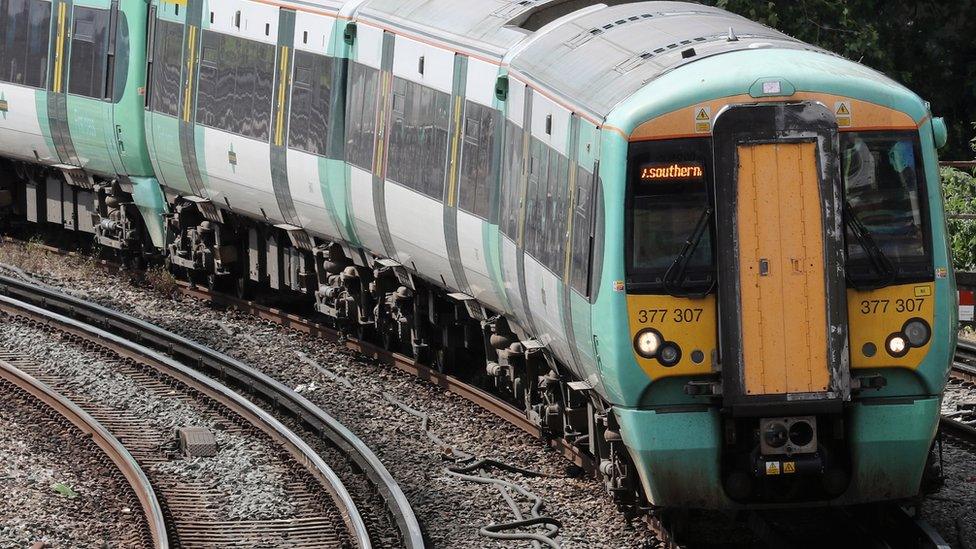Southern rail: Strike 'solidly supported', says RMT
- Published
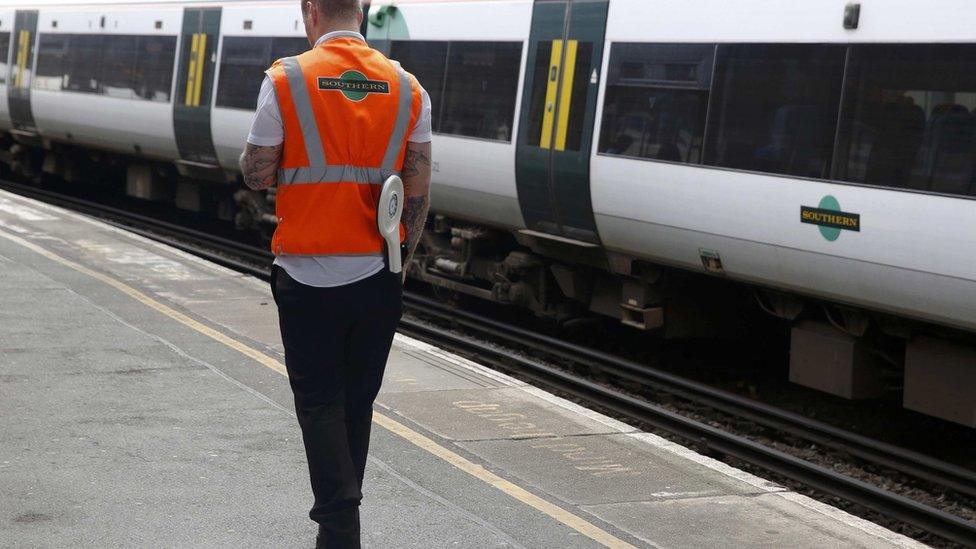
The dispute is over the role of guards on new trains
A Southern rail strike causing fresh travel chaos across London and the South East is being "solidly supported", the RMT union has said.
Workers have walked out for 48 hours in the long-running dispute with parent company Govia Thameslink (GTR) over the role of guards on new trains.
RMT spokesman Garry Hassell said the dispute "could last until Christmas".
Southern said the action would "achieve nothing" and it was pressing ahead with its plans.
Live Southern rail strike updates here
A Southern spokesman said: "This two-day strike will achieve nothing. After many months of trying to reach agreement with the RMT, we are now moving forward with our plans.
"We have guaranteed all our onboard staff a job until the end of the franchise, with no reduction in salary. Our plans are safe, and will mean fewer cancelled trains."
The rail operator said it was running 65% of the 2,020 trains detailed in an enhanced temporary timetable, but conceded many routes would have fewer trains and some would have no service at all.
Strike 'rock solid'
The latest action follows a series of one-day strikes since April and a five-day walkout last month that was called off after three days.
Speaking to BBC South East Today, regional executive Mr Hassell said: "It could last until Christmas if the company continues not to take on meaningful talks - I believe we've been the doves in this dispute.
"The game's not up because whatever trains they bring, and whatever the name of the company is, the train service must be run safely."
Meanwhile, RMT general secretary Mick Cash said the strike was "rock solid and determined".
Mr Cash claimed it had been "forced" on workers "by the arrogance and inaction of Govia Thameslink and the government, who have made it clear they have no interest in resolving this dispute or in tackling the daily chaos on Southern".
Passengers travelling from Brighton expressed their frustration at the latest strike action
The RMT is fighting moves to re-categorise conductors as "on-board supervisors", with drivers taking over responsibility for opening and closing carriage doors.
The union maintains it has legitimate concerns over safety and job cuts.
The rail operator, which imposed the changes on 21 August after several strikes went ahead, insists the plans are safe and will mean fewer cancelled trains.
The RMT said its fight was with "the company and the government, who have dragged this franchise into total meltdown".
"We cannot sit back while jobs and safety are compromised on these dangerously overcrowded trains," Mr Cash said.
The schoolchildren 'distressed' by rail strike
Speaking on Radio 4's Today programme, Mr Cash accused Southern of "trying to railroad through their plans by getting rid of a second safety-critical person", saying the move was "detrimental to passengers and the disabled".
Alex Foulds, Southern's passenger services director, responded: "Our priority is to make our services more accessible, not less.
"There will be an on-board supervisor rostered to work every single train on which we currently have conductors and, because they'll be able to work any of our routes, we'll find it much easier to cover someone who goes sick at the last minute, for example.
"Those on-board staff will be more visible and better able to offer passenger assistance for everyone, including those with disabilities."

Analysis: Richard Westcott, BBC transport correspondent @BBCwestcott, external
There's more to this strike than meets the eye.
It's become a critical battle in a wider war over how the railways are staffed in future.
The government wants to save money and that inevitably means changing the roles of some of the people who work there. Moving to driver only operated trains in franchises is a way to cut costs.
The unions say that threatens jobs, so they've drawn a line in the sand. No more driver-only trains.
Both sides have a lot at stake. Whatever happens with Southern could set the tone for other rail franchises coming up in the future.

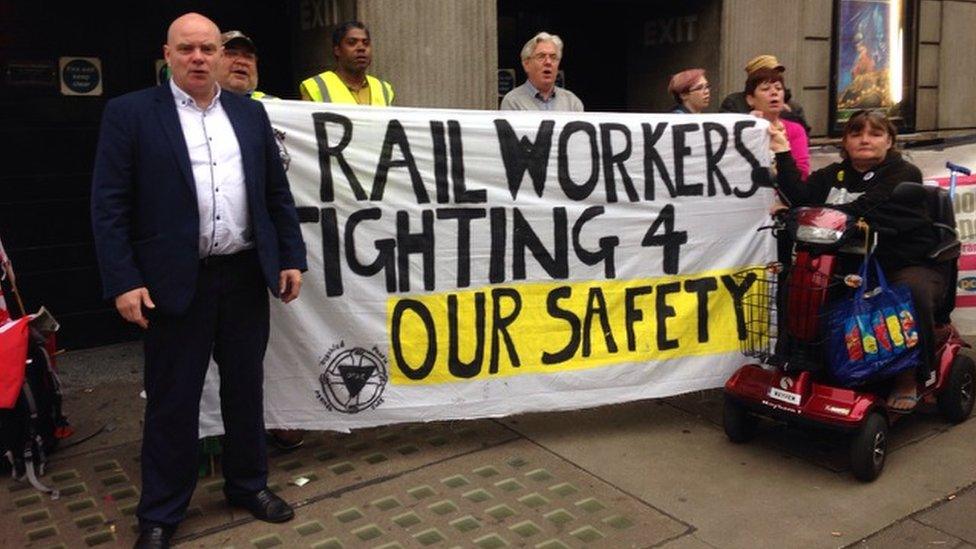
Disability campaigners joined an RMT picket line at London's Victoria station
Rail bosses said the strike was taking place in the same week Southern reinstated more than a third of train services it had removed from the timetable in July to cope with ongoing disruption.
When the reduced timetable was brought in, the rail company blamed issues with crew availability.
Industrial action by RMT members and high levels of staff sickness had contributed to disruption of Southern services from the south coast into London, but the union denied claims that staff illness was unofficial industrial action.
Rail Minister Paul Maynard said: "Passengers want a railway that works for them and delivers the timely, modern and convenient service they expect.
"They should not have to suffer any further disruption from strikes as the unions try and prevent the delivery of a modern railway, with additional capacity and improved performance."

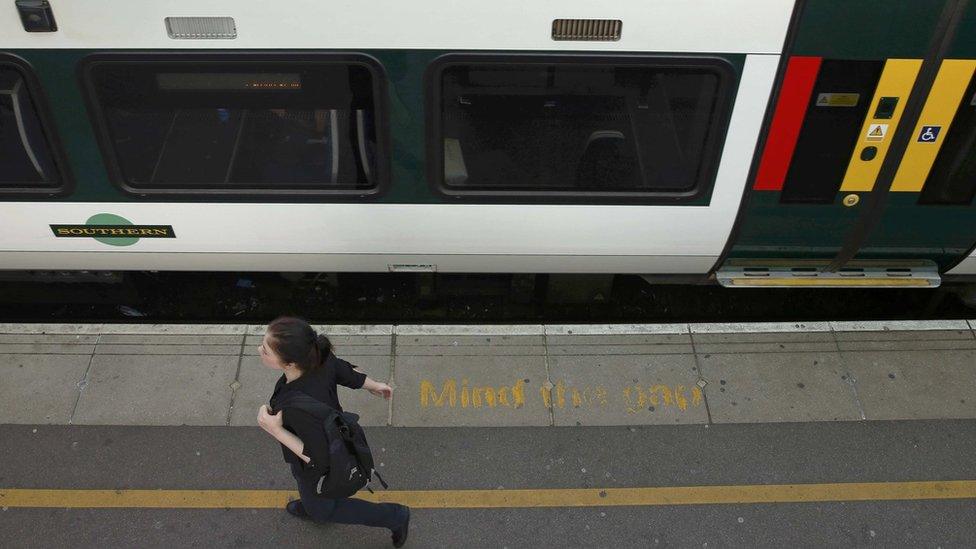
Some routes will have no service at all
Customer advice issued by Southern, external said routes it would have no service on included:
Clapham Junction to Milton Keynes via Kensington Olympia (London Overground and London Midland services will still operate as normal)
Dorking to Horsham
Leatherhead to Guildford (South West Trains services will operate)
Oxted to Uckfield
Haywards Heath to Lewes
Preston Park to Hove
Lewes to Seaford
Eastbourne to Ashford International via Hastings (Southeastern services will operate between St Leonards Warrior Square and Hastings as normal)
Chichester to Portsmouth Harbour and Southampton Central (South West Trains and Great Western Railway services will operate between Havant and Portsmouth Harbour/Southampton Central as normal)
Redhill to Tonbridge
Redhill to Reigate (Great Western Railway services will operate on this route as normal)
Earlswood, Salfords and Faygate stations will not be served
- Published5 September 2016
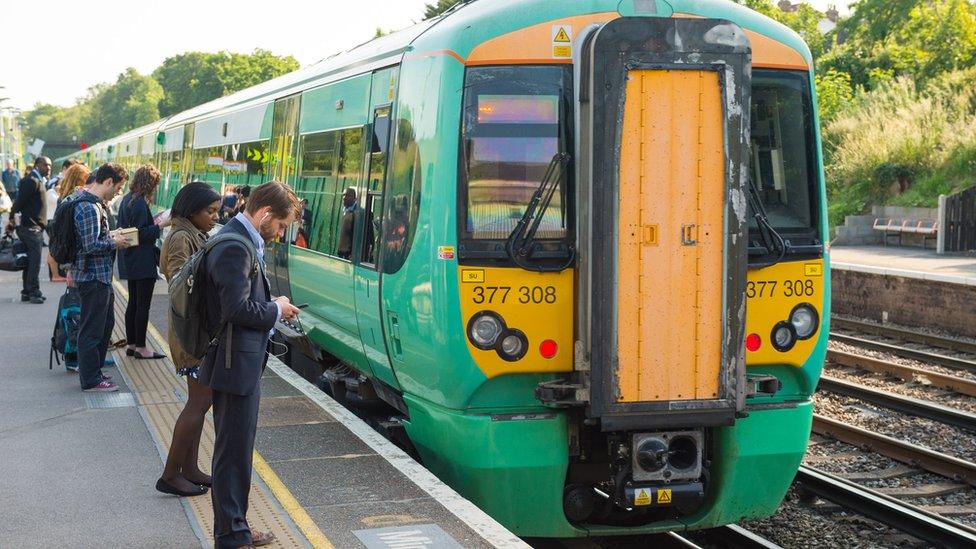
- Published2 September 2016
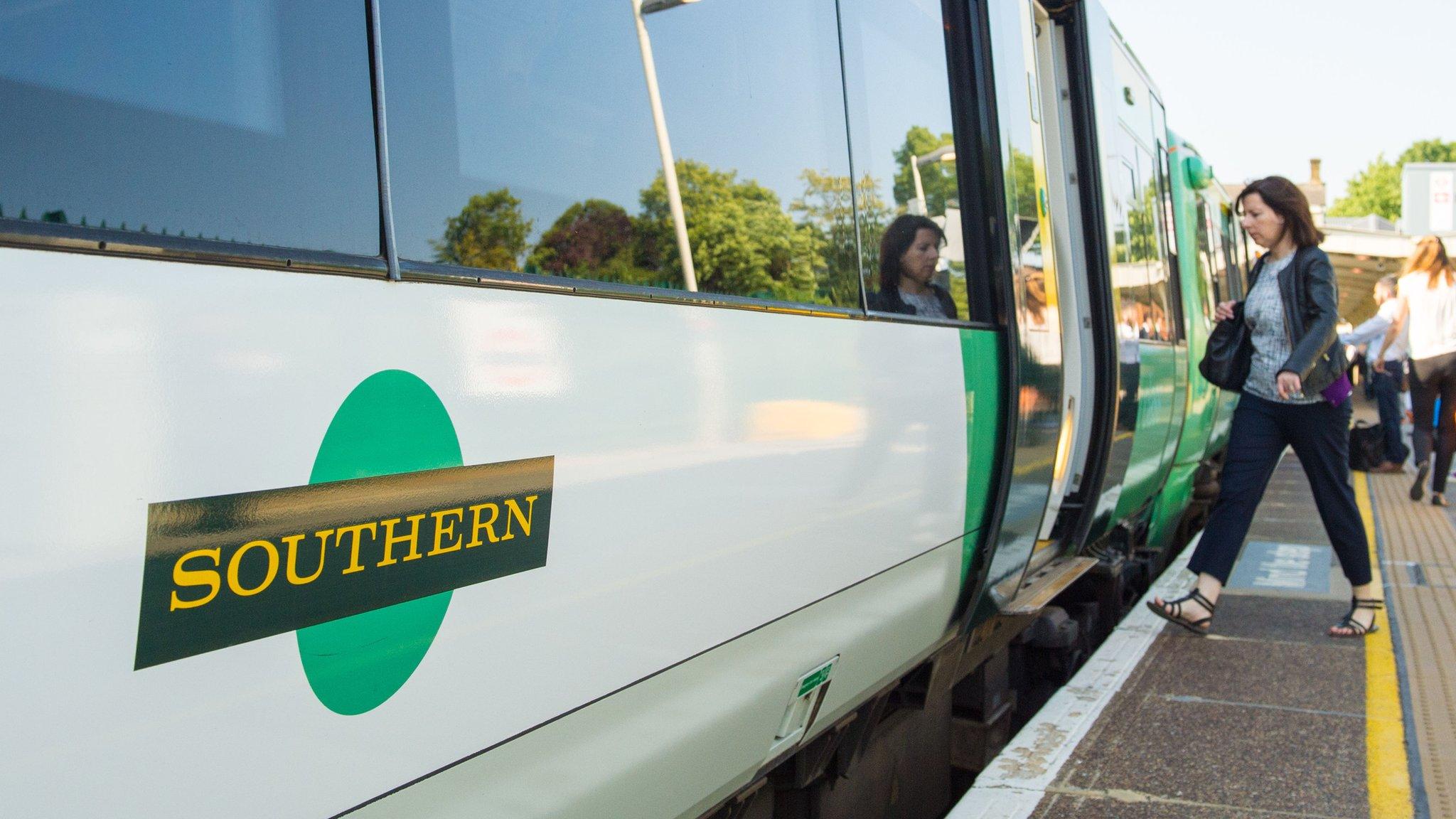
- Published1 September 2016
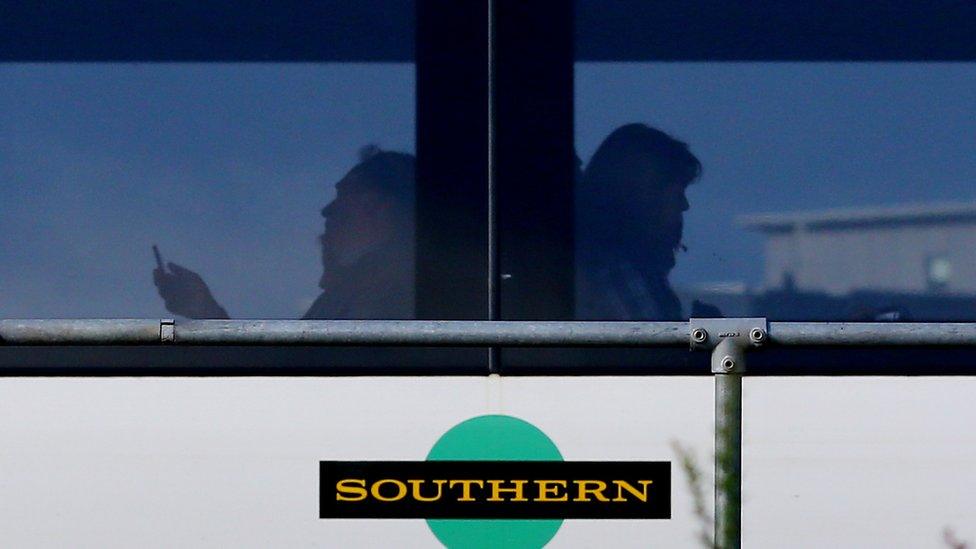
- Published30 August 2016
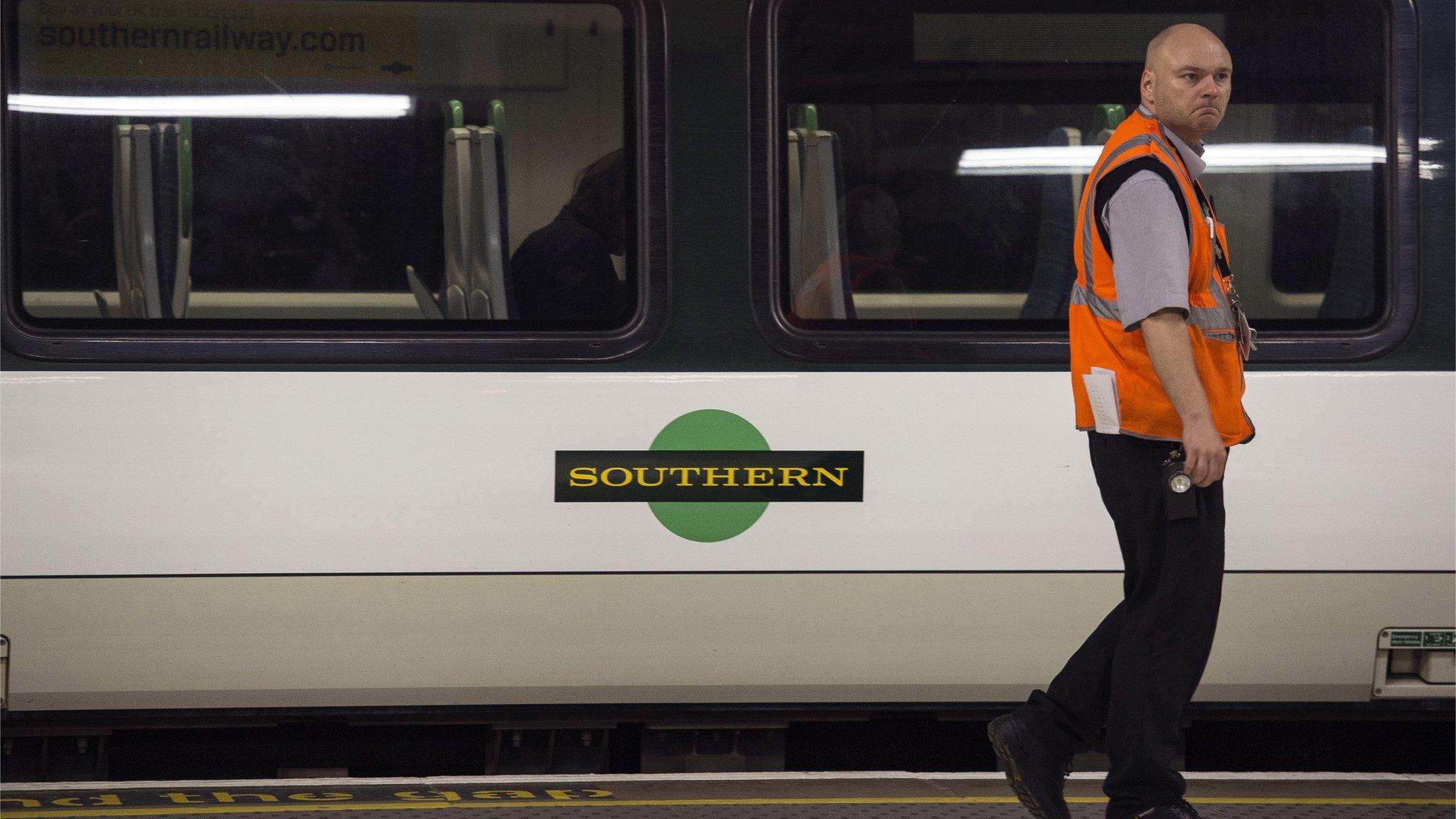
- Published10 August 2016
